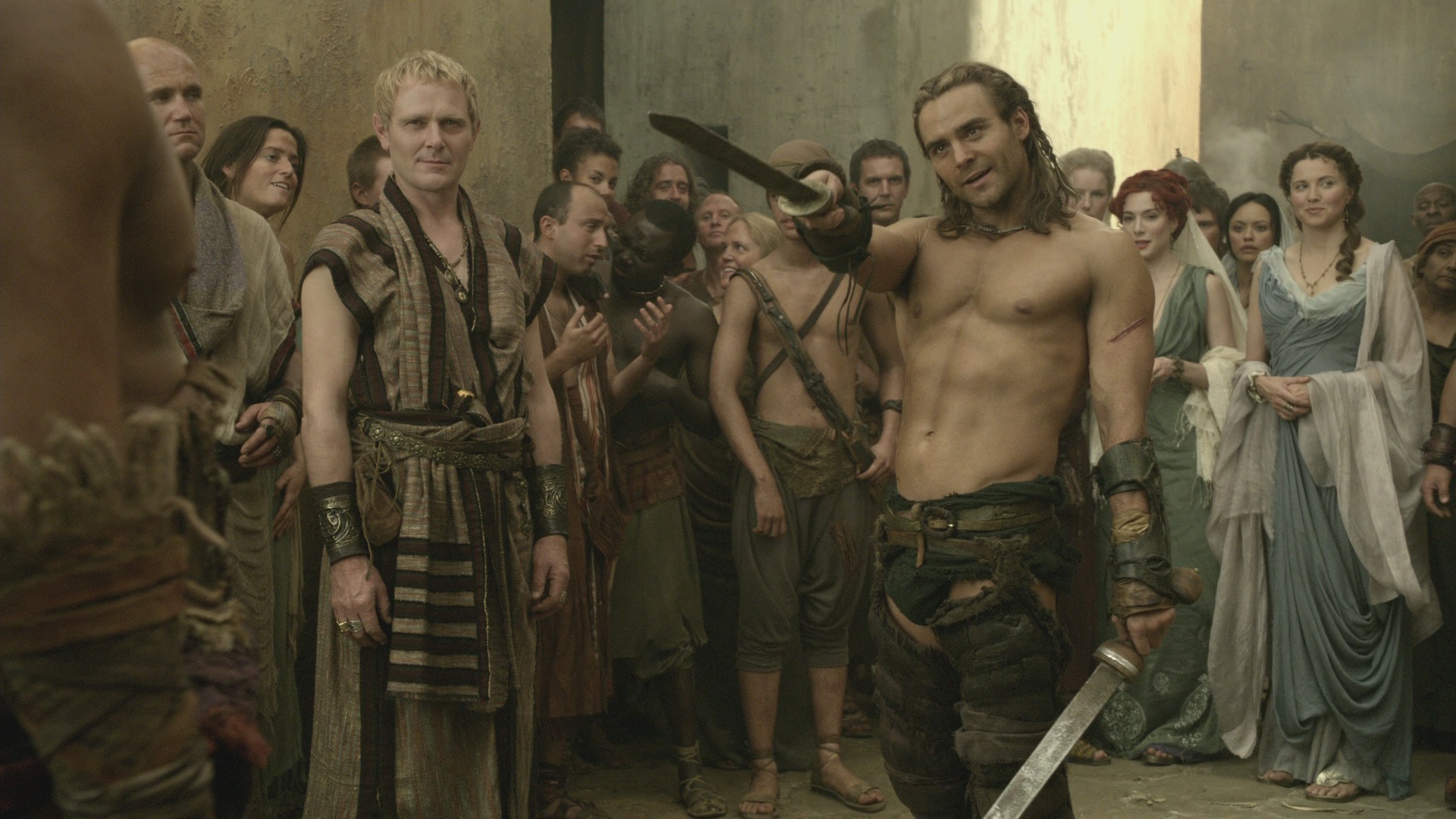Are you a fan of epic historical dramas? Then you must have heard of Spartacus – the Thracian gladiator who led a slave uprising against the Roman Republic. But do you know who the real Spartacus was and if the legend portrayed in the movies is true? In this blog post, we will explore the life of the original Spartacus, his real name, and the truth behind the legend. We will also delve into the history of the Spartacus movies, including the first-ever Spartacus film and the leading lady who won hearts with her performance. And, of course, we can’t forget to talk about the greatest gladiator in history and the worst one. So, get ready to be transported to the ancient Roman world and learn more about Spartacus – starring cinematography!
Uncovering the Identity of the True Spartacus: Beyond the Hollywood Tale
Spartacus is a name that has become synonymous with bravery and rebellion, but who was the original Spartacus? The real name of Spartacus is not known for certain, but it is believed that he was born in Thrace, an area that is now part of modern-day Bulgaria. He was a soldier in the Roman army but was later captured and sold into slavery.
The legend of Spartacus is one that has endured for centuries, but how much of it is true? While there is no doubt that there was a gladiator named Spartacus who led a rebellion against the Roman Empire, many of the details of his life and the events surrounding the rebellion are shrouded in mystery.
The story of Spartacus has been told many times over the years, but the first Spartacus movie was released in 1960. Directed by Stanley Kubrick and starring Kirk Douglas in the lead role, the movie was a massive success and is still regarded as a classic of cinema. The cinematography in Spartacus was groundbreaking for its time, and the battle scenes were particularly impressive.
While Kirk Douglas may be the most famous actor to play Spartacus, he was not the only one. The role has been taken on by many actors over the years, including Liam McIntyre, who played Spartacus in the TV series Spartacus: Blood and Sand.
Despite the many portrayals of Spartacus in popular culture, the real man remains something of a mystery. We do know that he was a skilled fighter and a charismatic leader who managed to unite a disparate group of rebels and gladiators against the might of the Roman Empire. He was ultimately defeated, and it is believed that he died in battle at the age of 35.
As for who the greatest gladiator in history was, that is a matter of some debate. Many gladiators were skilled fighters who earned fame and fortune in the arenas of Rome, but it is difficult to compare them to one another given the different eras in which they lived and fought. Similarly, it is hard to say who the worst gladiator ever was, as many gladiators were forced into the arena against their will and may not have been skilled fighters at all.
In conclusion, while the real name and life of Spartacus may never be known for certain, his legacy as a rebel and a symbol of resistance against oppression continues to inspire people to this day. The cinematic portrayals of Spartacus have helped to keep his story alive for new generations, and his legend will no doubt endure for many years to come.

🍿 Must Read Is there going to be a Gladiator 2?
Unveiling the True Identity of Spartacus – Was That Really His Name?
Spartacus, the legendary gladiator who led a slave rebellion against the Roman Republic, is one of the most recognizable figures from ancient history. Despite his fame, little is known about his personal life. However, it is believed that his real name was Sparatokos, which is a Thracian name. The Thracians were an ancient people who lived in what is now modern-day Bulgaria and Greece. The name Sparatokos is believed to mean “spark” or “torchbearer”.
While some historians believe that Spartacus was given this name at birth, there is also a possibility that it was a nickname. In ancient Rome, gladiators often adopted new names that reflected their fighting style or physical appearance. For example, one of Spartacus’s fellow rebels was named Crixus, which means “one with curly hair” in Gaulish.
Despite the lack of certainty surrounding Spartacus’s name, it is clear that he left a lasting legacy. His rebellion against the Roman Republic inspired countless others to fight for their freedom throughout history. The story of Spartacus has been retold in numerous books, movies, and TV shows and continues to captivate audiences around the world.
Unraveling the Truth behind the Legend of Spartacus: A Historical Analysis.
The legend of Spartacus has become a popular subject of discussion, especially after the release of the 1960 film directed by Stanley Kubrick. Although the legend of Spartacus is based on true events, it is important to note that much of the story is fictionalized. There is a lot of controversy over how much of the legend is true, and what parts are simply myth.
One of the main things that is agreed upon is that Spartacus was a real person who led a slave rebellion against the Roman Empire. However, many of the details surrounding his life and the rebellion are unclear, as there are very few primary sources available from that time period.
Despite the lack of concrete evidence, the legend of Spartacus has continued to capture the imaginations of people throughout history. The idea of a group of oppressed individuals rising up against their oppressors is a timeless and powerful story, and it is not surprising that it has been adapted into so many different forms of media over the years.
In conclusion, while the legend of Spartacus is not entirely true, it is still an important part of history and has had a significant impact on popular culture. It is important to remember that while the legend may not be entirely accurate, it is still a valuable story that can teach us a lot about the human experience.

Uncovering the Origin of Spartacus: A Journey Through its First Creation
Spartacus, the epic film which kickstarted the career of legendary director Stanley Kubrick, was first released on October 6th, 1960. This film proved to be a defining moment for actor Kirk Douglas, who played the lead role of Spartacus. The movie is considered to be one of the most influential epic films ever made and its impact is still felt in the film industry today. Spartacus was a commercial and critical success, earning four Academy Awards and inspiring a television series, novels, and several other adaptations. The film’s themes of freedom, rebellion, and the human spirit continue to resonate with audiences around the world. Overall, Spartacus remains a timeless classic that has left an indelible mark on cinema history.
>> Related – Are Max Allison and Dani in Hocus Pocus 2?
Unveiling the Identity of Spartacus’ Female Lead Character.
Jean Simmons was a British-American actress who played the leading lady in Spartacus. Born as Jean Merilyn Simmons in Lower Holloway, London, England, on 31 January 1929, she began her acting career at the age of 14. She gained prominence in the 1940s and 1950s as a versatile actress and a talented singer. She was known for her ethereal beauty, which she brought to her role as Varinia, the love interest of Spartacus in the 1960 film.
Simmons started acting in British films before moving to Hollywood, where she worked with some of the biggest names in the film industry. She received critical acclaim for her roles in movies like Black Narcissus, Hamlet, and The Happy Ending. She was nominated for two Academy Awards for Best Supporting Actress, for her work in Hamlet and The Happy Ending.
Jean Simmons died on 22 January 2010, at the age of 80, in Santa Monica, California, U.S. She left behind a rich legacy of films and performances that continue to inspire audiences today. Her portrayal of Varinia in Spartacus remains one of her most memorable performances, showcasing her talent as an actress and her timeless beauty.
Uncovering the Legendary Gladiator of All Time.
Spartacus may be the most well-known gladiator in history, and for good reason. He was not just a skilled fighter, but a leader who inspired a rebellion against the Roman Empire. He was born in Thrace, a region that is now part of modern-day Bulgaria, and was captured by the Romans and sold into slavery. Like many other gladiators, Spartacus was trained at a gladiator school where he learned to fight with weapons and entertain crowds with his prowess in the arena.
However, the life of a gladiator was not an easy one. The training was brutal and many did not survive. It was a way for the wealthy to enjoy violent entertainment while also punishing criminals and slaves. Despite the harsh conditions, Spartacus managed to retain his fighting spirit and soon became a formidable opponent. His skills were put to the test when he and 78 others rebelled against their master, Batiatus, using only kitchen knives. Their success inspired more slaves to join their cause, and soon they had an army of thousands.
While Spartacus was undoubtedly a great gladiator and leader, it is difficult to say whether he was the greatest in history. There were many other skilled fighters who entertained crowds in ancient Rome, and some may have even been more successful in battles. However, Spartacus’ legacy as a rebel leader who fought for his freedom and that of others has made him a hero to many. His story has been retold in books, movies, and TV shows, cementing his place in history as one of the most famous gladiators of all time.

Unraveling the Mystery: What was Spartacus’ Age at the Time of His Death?
Spartacus, the legendary gladiator, was born around 103 BC near the Strymon river in present-day Bulgaria. He died at the young age of 32 in 71 BC, near Sele River in Lucania, Italy. Despite his relatively short life, Spartacus made a significant impact on history as he led a slave uprising against the Roman Republic.
Spartacus served in the Roman army as an auxiliary before being captured and sold into slavery. He was trained as a gladiator and soon became a formidable fighter, eventually leading a rebellion of slaves and gladiators against their Roman oppressors. Spartacus’ leadership and tactical skills enabled the slave army to defeat Roman forces in several battles, but ultimately, they were defeated in 71 BC, and Spartacus was killed in the battle.
Despite his untimely death, Spartacus’ story has continued to captivate people for centuries. His fight for freedom and his unwavering dedication to his cause have made him a symbol of resistance against oppression. The tale of Spartacus has been retold in books, movies, and television shows, demonstrating his lasting impact on popular culture.
The Least Skilled Gladiator in History: Who Was It?
The world of gladiators was one that was highly competitive, with each one trying to outdo the other in terms of skill and strength. Among the different types of gladiators, the Retiarius was often considered the worst of them all. The Retiarius was a gladiator who first appeared in the arena during the 1st century AD and had become a standard attraction by the 2nd or 3rd century.
This gladiator was known for his lack of armor and his reliance on evasive tactics. Due to this, many considered the Retiarius to be the lowliest and most effeminate of all the gladiators. It was a stigmatized class of gladiators, which made them unpopular among the spectators. The Retiarius was equipped with a trident, a dagger, and a net, which he used to trap his opponents. The lack of armor made him vulnerable to attacks from other gladiators, which often led to his defeat.
However, despite the Retiarius being considered the worst gladiator, they were still highly skilled fighters. They had to be quick on their feet and have excellent reflexes to avoid attacks from their heavily armed opponents. Despite the stigma attached to their class, Retiarii were still an essential part of the gladiatorial games. They were often paired with other types of gladiators, such as the Secutor, who was heavily armed, creating an exciting match-up for the spectators.
In conclusion, while the Retiarius may have been considered the worst gladiator due to their lack of armor and reliance on evasive tactics, they were still highly skilled fighters. Despite the stigma attached to their class, they were an important part of the gladiatorial games, and their matches were always a thrilling spectacle for the spectators.
More to discover
the legend of Spartacus has captivated the hearts of many throughout history. Although there are some discrepancies regarding his real name and age at death, there is no denying that Spartacus was a formidable gladiator who led a rebellion against the Roman Empire. The story of Spartacus has inspired many films and TV shows, including the 1960 classic “Spartacus” starring Kirk Douglas and directed by Stanley Kubrick. The film’s stunning cinematography and portrayal of the gladiator’s struggle have made it a timeless classic that continues to captivate audiences today. Whether you’re a history buff or just a fan of epic tales, the story of Spartacus is one that you won’t want to miss.
